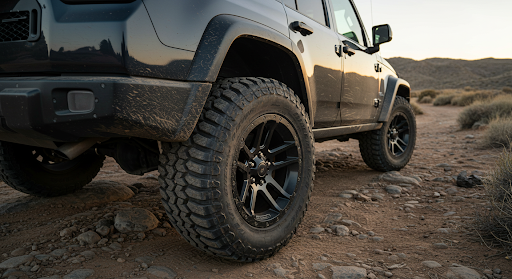
As fuel cell technology rapidly moves forward, it finds a path into the hands of performance enthusiasts. On a Saturday afternoon at the Milan Raceway in Michigan, Inergy Automotive Systems drove its leased DaimlerChrysler F-Cell down the quarter-mile stretch with documented times less than 19 seconds, at speeds in excess of 70 miles per hour. The hydrogen fuel cell vehicle didn’t break any land speed records but the possibility of zero-emissions high- performance has been recognized.
The trip to Milan Raceway yielded valuable systems data that will be used to improve DaimlerChrysler fuel cell vehicles and help the Department of Energy make decisions about our nation’s future energy needs. The information gathered also will help Inergy Automotive Systems expand its research and development of hydrogen storage systems — one of the hurdles the technology faces.
Inergy Automotive Systems has developed a strong relationship with DaimlerChrysler to improve hydrogen storage and distribution technology, particularly with regard to the optimized integration of hydrogen tanks into vehicles.
A true leader in fuel cell transportation, DaimlerChrysler has spent more than $1 billion in fuel cell vehicle research and development. No other manufacturer has accumulated more vehicles or data or driven more zero- emission miles — 1.3 million miles.
The DaimlerChrysler fuel cell vehicle fleet is diverse — in addition to several research vehicles, it also includes medium-duty Dodge Sprinter vans and more than 30 Mercedes-Benz Citaro buses, which operate in Europe, the United States, Japan, Australia, China and Singapore. As part of the world’s largest fleet of fuel cell vehicles, DaimlerChrysler has more than 25 fuel cell vehicles with customers in California and more than 100 around the world. No other manufacturer comes close to the efforts of DaimlerChrysler with fuel cell technology.
DaimlerChrysler pioneered fuel cell vehicle technology more than a decade ago. Fuel cells release energy from the reaction of hydrogen with a catalyst and oxygen. This clean technology operates at a high level of efficiency and is true zero-emissions. Hydrogen-powered fuel cell vehicles emit only pure water vapor as exhaust. DaimlerChrysler works closely with Ballard Power Systems to develop the fuel cell stack. Fuel cell vehicles are part of DaimlerChrysler’s advanced propulsion technology umbrella, which includes efficient gasoline engines, advanced diesels, flex-fuel and hybrid powertrain systems.
For Inergy Automotive Systems, innovation is a state of mind and an essential factor in market competitiveness, leading its teams toward new heights of success. Inergy Automotive Systems is the leading tier-one supplier of fuel systems to the major car manufacturers. One in five light vehicles produced in the world is equipped by Inergy. Inergy Automotive Systems’ research budget is constantly increasing, growing in the past three years from 0.9 percent to 2 percent of the company’s sales. In addition to responding to the challenge of producing environmentally friendly vehicles, Inergy Automotive Systems is dedicated to developing new optimized architectures and concepts. Inergy Automotive Systems’ strategy is based on innovation, environmental protection and sustainable development — always working toward a better, cleaner world









More Stories
Dürr and GROB concept battery factory uses 50% less production space
DuPont materials science advances next generation of EV batteries at The Battery Show
How Modern Power Management Enhances Connected Fleet Tech